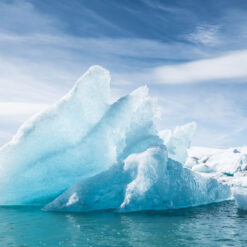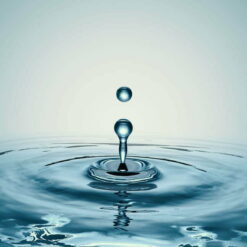Recently updated on: June 2nd, 2023
In many cosmetic products, water is the compound of the highest concentration, or even frequently serving as the base of the formulation. Consequently, the type of water used and its quality may have a major impact on the quality and properties of the finished product.
Water and the microbiological purity
Regulation (EC) No. 1223/2009 of the European Parliament and of the Council of 30 November 2009 requires cosmetic manufacturers to perform microbiological testing on the produced cosmetic products and specify the amount of bacteria detected in the samples. Although preservatives are added to the majority of cosmetics, to ensure their high biological purity, noteworthy they are added at the final stages of the manufacturing process. Yet at the same time, water constitutes a very good environment for the development of undesirable microorganisms. In other words, use of bacteria-contaminated water creates a hazard of microbes making their way into the product. To avoid this, the water used is mainly distilled or even additionally purified and demineralized. However, when water is purified in the manufacturing plant, the equipment and tanks used for this purpose should also be regularly tested and checked-up for microbiological purity, as well as sanitized.
Mineral water in cosmetology
Some manufacturers also use natural-origin waters – thermal water or glacial water. When proper biological purity of the process is ensured, these types of water also provide the advantageous properties of minerals and elements contained therein. In other words, the water is not only the base of the manufactured product, but also enhances its beneficial effects on the human skin.
Impact of water mineralization on emulsifying properties
However, minerals present in thermal waters may impact the rheological properties and stability of the obtained emulsions. Moreover, the composition of plant-based products may be very variable, especially due to environmental factors.
Tests performed on cosmetic emulsions containing the jojoba oil, lanolin and Polish thermal waters (Muszynianka, Słotwinka, and Solanka Rabczańska) as the water phase show clear differences between the respective rheological properties of the produced emulsions. The higher the mineralization of the water used, the higher the rigidity of the obtained emulsion, which slows down its aging process.
In other words, cosmetic products prepared with thermal waters, with a high mineral contents, can be characterized by better stability and retain their elastic properties for longer during storage.
Beneficial properties of glacial water
Among natural waters, glacial water is growing in popularity. It is obtained from naturally melting glaciers and possesses unique properties strictly connected with its exceptional source.
Glacial water is not only one of the cleanest waters in the world, characterized by a very high degree of microbiological purity, but it is also a rich source of valuable minerals and vitamins. At the same time, it is hypoallergenic and an entirely natural product. Glacial water moisturizes the skin, provides nutrients, as well as strengthening and calming effects. Consequently, it may be used not only as a base for cosmetic products, but also as one of the active substances, contributing to the advantageous properties of the finished product.
Bibliography:
- Tal-Figiel B, Figiel W, Michno A. Wpływ składu fazy wodnej na właściwości reologiczne i stabilność emulsji kosmetycznych. Inż. Ap. Chem. (2015), 54(2):051-052.
- Półtoranos F, Czuba K. Badania mikrobiologiczne preparatów leczniczych i kosmetyków. LAB (2015), (20)2:21-28.
- https://codziennikkosmetyczny.pl/2020/08/11/woda-w-kosmetykach-dlaczego-jej-czystosc-i-wlasciwosci-sa-tak-wazne/
- https://www.kierunekkosmetyki.pl/artykul,56211,woda-lodowcowa-w-kosmetykach.html




